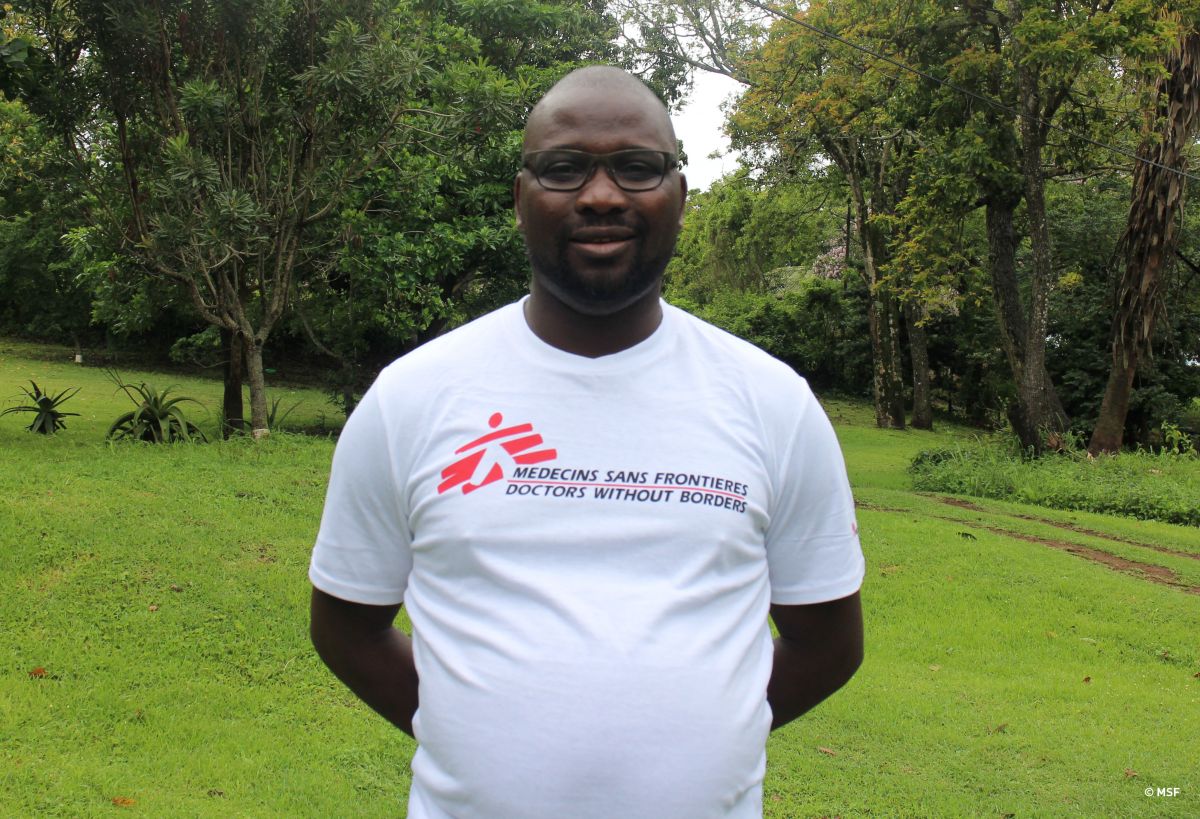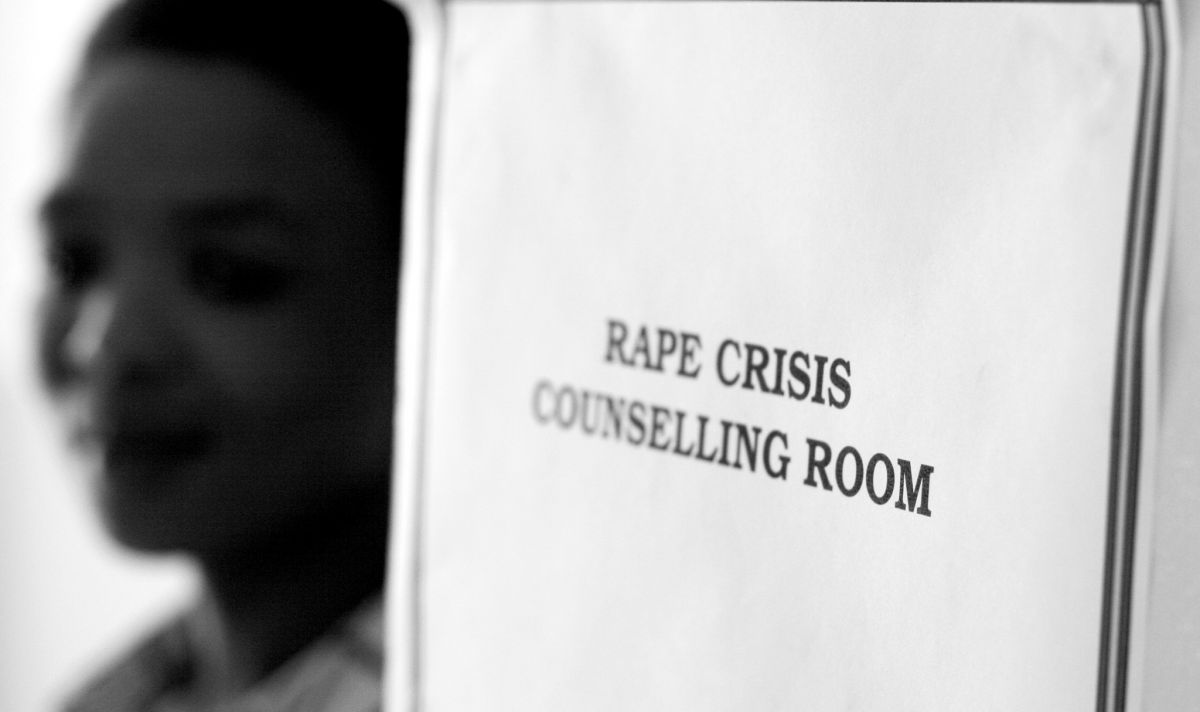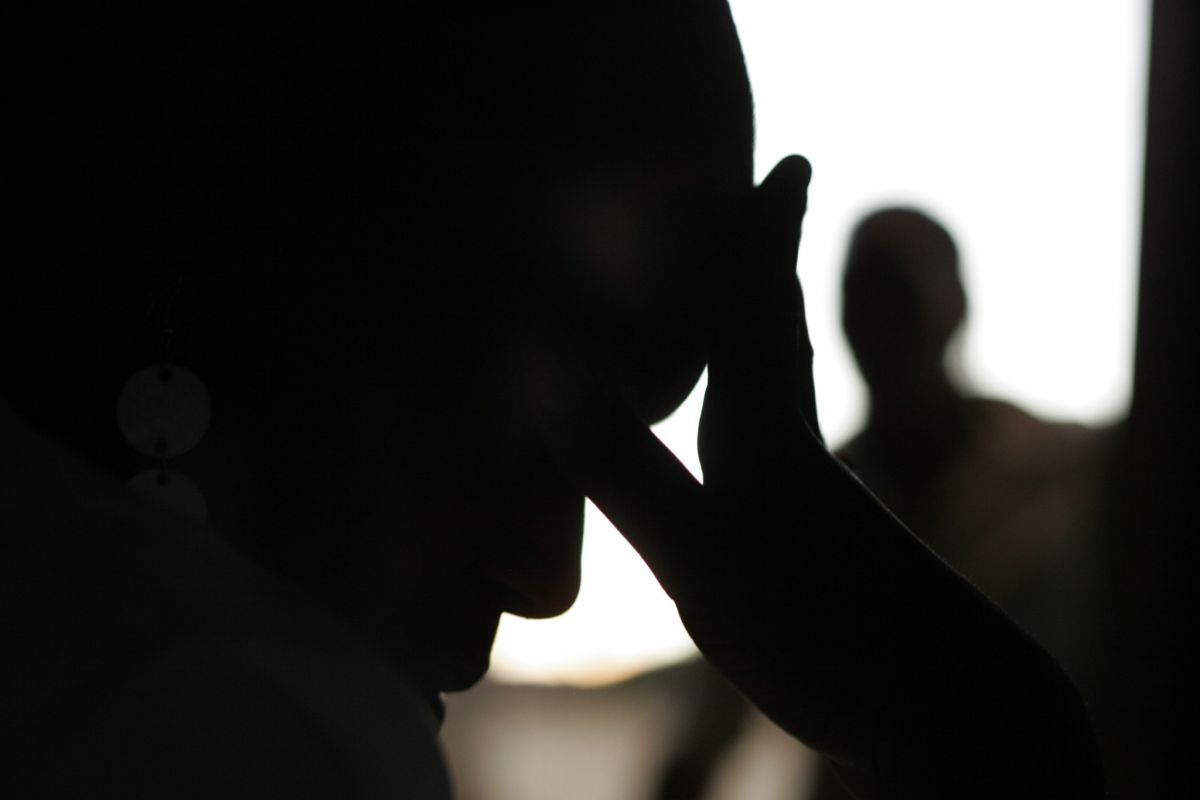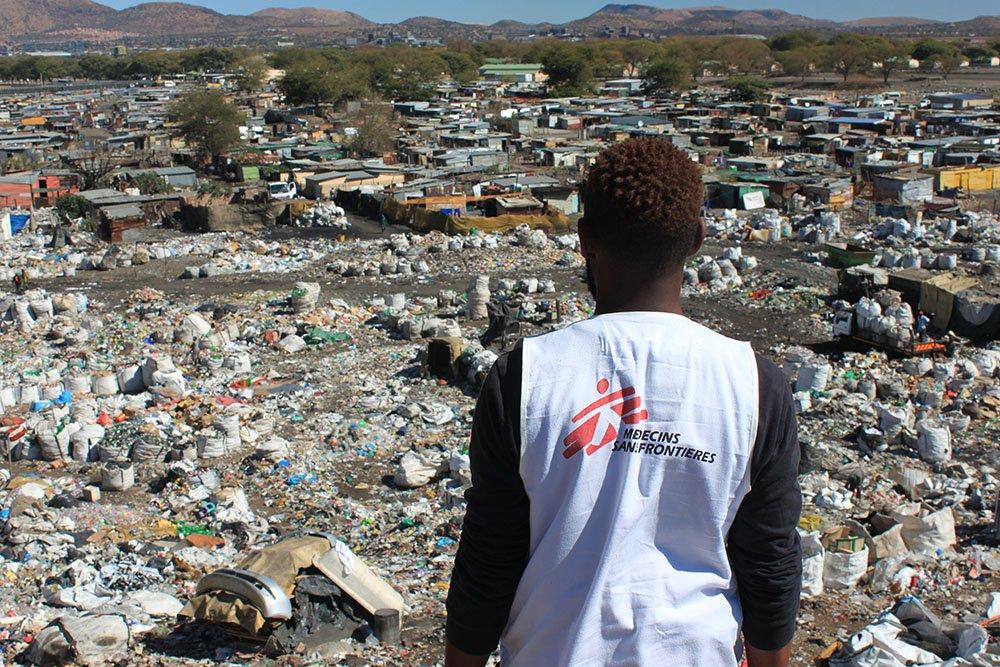Ernest Ncube (43) first joined Doctors Without Borders (MSF) in 2011, working as a counsellor at an MSF inner-city clinic providing healthcare to undocumented migrants and vulnerable residents in slum buildings in Johannesburg.

Ernest, originally from Zimbabwe, talks about his work and the difference MSF is making in the community.
Tell us about MSF’s work in Rustenburg?
In Rustenburg in 2015, MSF conducted a survey which found that 1 in 4 women sampled had been raped or sexually abused at some point in their lives, and that most of them didn’t seek medical help or report the incident to the police. So part of what our project does is to try by all means to get survivors to come to our centres (the Kgomotso Care Centre) for free and confidential medical, psychosocial care and access to legal support.
MSF supports three Kgomotso Care Centres in the areas of Bapong, Boitekong and Lethlabile. There, our health promotion team goes out daily – to the community, healthcare facilities, schools – raising awareness and educating people. We do health talks, health screenings, talks about SGBV, domestic abuse, intimate partner violence, and we emphasise the importance of seeking medical care.
If the team meets any survivors, they refer them to our centres for psychosocial support, counselling and for forensic evidence collection.

MSF also offers Choice of Termination of Pregnancy (CTOP) services, something which is so vital in Rustenburg. After rape, some survivors can become pregnant, so our centres help them, especially young schools kids who cannot be mothers, by performing procedures to those who request it. Women getting safe medical abortions means a reduction in the number of deaths from backstreet abortions in the community. MSF has also provided the centres in Bapong and Lethlabile with ultrasound machines that make it easier for our nurses to perform CTOP procedures.
Why is health promotion important in Rustenburg?
A lot of people in this North West community have experienced or know someone who has been abused sexually, so it has severe health and psychosocial implications. Having health promotion services is of great importance for everyone. People who come to seek psychosocial help and medical care at our centres benefit from it. Our presence in the community is essential because there are no other similar centres around.
To me, MSF is ray of hope for patients. We are the only ones in this community offering this model of care, free of charge, close to the people who need it most. Many who get care at our centres are satisfied with how we helped them and even refer other people who need this kind of service.

What challenges do you face in your daily work?
Our biggest challenge at the moment is that people are not fully ready to open up and talk freely about sexual abuse and, in some cases, people have even normalised sexual and domestic abuse because they didn’t see the need to report it or to seek help.
We do reach people in the community, but many don’t seek help at our centres as they are afraid of the perpetrators or of being blamed by community members. The taboo around talking about sexual violence is so great and some survivors never seek care because they are financially dependent on their abusers.
What is the most rewarding part of your work?
I have a passion for working with people, for doing work inside communities. I enjoy going into schools, communities and health facilities to speak out about SGBV and to create awareness about how people can seek help.
For me the biggest success is seeing people coming to our centres for medical care and support, and the relationship we now have with the local police around Madibeng. Today the police know when dealing with a rape or sexual abuse survivor to refer them to our Kgomotso Care Centres.
Find out more about MSF’s work in South Africa.
